The IP Strategy Summit: Seattle
In today’s volatile innovation landscape, intellectual property is more than protection; it’s power. The Seattle IP Strategy Summit brings together the nation’s leading IP executives, general counsel, and industry experts to explore how top organizations are protecting, leveraging, and monetizing their intellectual assets in a fast-changing global market. This is where high-level strategy meets real-world execution. Dive into discussions on building resilient patent portfolios, navigating trade secret risks, maximizing brand value through licensing and collaborations, and addressing the IP challenges posed by generative AI. Learn how leading organizations are approaching valuation, enforcement, and litigation funding to strengthen their IP posture and drive business growth.
Designed for IP professionals navigating the intersection of law, technology, and enterprise value, this summit delivers actionable insights and benchmarking opportunities that elevate your IP program from reactive to strategic. From cross-border litigation and portfolio monetization to brand enforcement and proprietary information governance, you’ll hear how innovators across sectors are aligning IP strategy with business outcomes. Whether you manage patents, trademarks, trade secrets, or licensing initiatives, the Seattle IP Strategy Summit is your opportunity to connect with peers, gain forward-looking perspective, and walk away with the tools to turn your company’s IP into a lasting competitive advantage
This event is co-located with the AI Governance & Compliance Summit, providing attendees with access to both tracks for a comprehensive experience. By joining, you’ll enjoy a full day of thought-provoking IP and AI sessions, doubling your networking reach and cross-disciplinary insights under one roof.
* 5 HRS WA CLE
- Company-vs-Company Patent Wars: Offensive + Defensive Playbooks
- Portfolio Pivots: Prosecution & Management for an Enforcement-Friendly Era
- Trade Secrets that Survive Court Scrutiny
- Strength and Strategy: Monetizing and Defending Patents
- Brand Protection & Enforcement in the Digital Age
- Copyright, Confidentiality & Control: Redefining Ownership in the Modern Enterprise
- Using Your Full Arsenal: Leveraging Every IP Asset to Strengthen Competitive Position
-
Chief Intellectual Property Counsel
-
Chief Legal Officer / General Counsel
-
Deputy, Associate & Assistant General Counsel
-
Vice President / Director of Intellectual Property
-
Vice President / Director of IP Strategy
-
Vice President / Director of Licensing & Commercialization
-
Head of Litigation & Dispute Resolution
-
Intellectual Property, Trademark & Copyright Counsel
-
Patent Counsel & Patent Portfolio Managers
-
Corporate Counsel & Legal Operations Leaders
-
Director of Business & Legal Affairs
-
Counsel, Privacy & Technology Transactions
-
Licensing, Commercialization & Business Development Executives
-
IP Valuation, Risk, and Monetization Specialists
-
Compliance, Brand Protection & Anti-Counterfeiting Leaders
Agenda
One-to-One Meetings begin. If interested in participating, email info@centerforceusa.com
Corporate patent litigation has entered a new phase of complexity and intensity. As operating companies increasingly face peers, suppliers, and cross-industry challengers, the playbook for balancing assertion and defense has evolved. With the PTAB’s discretionary-denial practice shifting and global enforcement options expanding, companies are rethinking when to file, how to fight, and how to coordinate actions across venues. From cross-licensing pressure to insurance, countersuits, and portfolio readiness, this discussion reveals how leading IP teams protect innovation while advancing business objectives in an environment of rising filings, multi-forum battles, and heightened settlement leverage.
This panel will explore:
- How new PTAB discretionary-denial trends and USPTO guidance are reshaping filing, enforcement, and defense strategy.
- Navigating cross-licensing demands, indemnity, and supply-chain leverage as part of modern litigation posture.
- Coordinating PTAB, district court, ITC, and UPC proceedings without overextending teams or budgets.
- Lessons learned from in-house leaders on what truly moved settlement numbers—and how today’s company-vs-company disputes are redefining risk tolerance and deal dynamics.


Alexey Titov is an Intellectual Property Director at Stryker, a leading medical device company. His primary interests include defining IP strategy and patent development processes that maximize the business value of patent portfolios. Prior to joining Stryker, Alexey worked at a variety of intellectual property organizations including an IP consulting firm, a university technology transfer office, and a premier technology development company. Alexey is an inventor on 31 U.S. issued patents, has contributed a chapter to a book “Intellectual Property in Academia: A Practical Guide for Scientists and Engineers,” and is an author of several papers in the field of high energy and nuclear physics. He holds a Ph.D. in physics from the Rockefeller University, NY, and an M.S. in physics from Kharkov University, Ukraine.


Christopher Sweeney, Executive Director of Intellectual Property at Acuitas, focuses on aligning the company’s global IP strategy with its business objectives and supporting its robust internal research and development (R&D) program. He has over 20 years of experience in IP law and prior to joining Acuitas, served as Executive Director of IP at Seagen until its acquisition by Pfizer. Previously, he was an equity partner in the Seattle Office of Knobbe Martens. He received his JD (IP concentration) from the University of Washington, his MS in chemistry from the University of Oregon, and his BS in biochemistry from Gonzaga University.


Eric Hiponia is a Senior Patent Counsel at Intel, where he manages and develops a comprehensive patent portfolio spanning multiple technologies. His portfolio includes thousands of assets across multiple jurisdictions, covering diverse technology areas such as wireless core technologies, network infrastructure, and silicon photonics. He also played a pivotal role in high-profile transactions and licensing projects involving standards-essential patent (SEP) assets.
Eric oversees the performance of all US-based Outside Counsel (OC) firms supporting the patent group. He works with his team to create metrics for evaluating application quality, prosecution effectiveness, and cost efficiency across thousands of pending applications in multiple jurisdictions. His leadership ensures that patent strategies align with Intel’s long-term technological and business objectives.
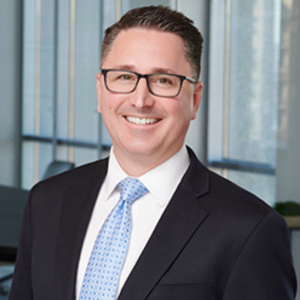

Jonathan Tuminaro, Ph.D. is a director in Sterne Kessler’s Trial & Appellate and Electronics Practice Groups. Jonathan is an experienced trial lawyer who focuses his practice on complex electronics litigation in the U.S. district courts, the U.S. International Trade Commission (ITC), and the Patent Trial and Appeal Board (PTAB). He has represented some of the leading high-tech companies in patent litigation matters relating to telecommunications, network security, LCD flat-panel displays, computer graphics, automotive technologies, GPS location-based service, and wireless power transfer. Jonathan is particularly well known for his extensive experience handling economics issues in patent litigation—including damages in district court, domestic industry at the ITC, and objective considerations of non-obviousness at the PTAB. He has defended patents that have led to judgments worth nearly $25M and has defended against patents where the damages were alleged to exceed $100M.
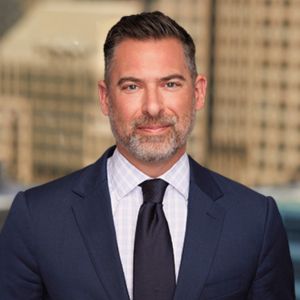

The era of automatic filing is over. As litigation costs rise and global enforcement accelerates, IP leaders are re-engineering their portfolios around strategic strength, not size. This session unpacks how in-house counsel are pruning, clustering, and continuing only the assets that can deliver injunctions, drive damages, and support sustainable enforcement across key venues.
This panel will explore:
- Realigning patent families toward assets with high enforcement and injunction potential.
- Drafting and continuation strategies that preserve optionality across U.S., UPC, and §337 landscapes.
- Building metric-driven reviews that tie spend to enforcement ROI and executive accountability.
- How fast-track proceedings at the UPC and active PTAB filings are influencing prosecution strategy.




Currently Senior IP Counsel at Cepheid, Paul previously served as Vice President of IP & Legal at Moat Metrics (formerly part of Aon plc) and held legal roles at Lane Powell (Counsel to the Firm) and RareCyte (Director, Legal & IP). Paul also served as a patent examiner at the U.S. Patent and Trademark Office. He brings a cross-sector perspective to IP strategy, licensing, IP analytics and valuation, litigation, and compliance across multiple industries, including biotech, diagnostics, telecommunications, AR/VR, AI/ML, green energy, and aerospace.
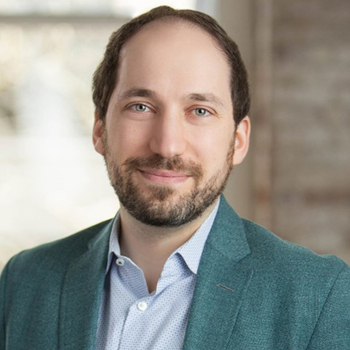

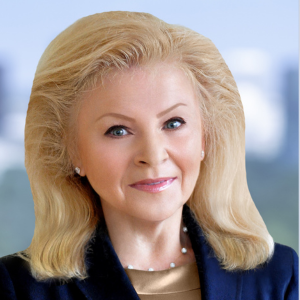

Malgorzata “Gosia” Kulczycka is an experienced attorney in the firm’s San Jose office with a broad-based IP law practice. With more than 15 years of legal experience, Gosia works to protect and support her client’s intellectual property through patent preparation and prosecution and by employing trademark and brand protection strategies for and against infringement claims.
Inventor herself, Gosia practices in various IP areas and technologies, including artificial intelligence and machine learning, communication technologies, complex software, and more.
Gosia also has extensive experience in computer graphics and computer networks. She has procured and managed large IP client accounts in computer graphics and AI.
If interested in participating, email info@centerforceusa.com
Trade secrets remain one of the most valuable and most vulnerable corporate assets. Courts are increasingly demanding proof of real, not cosmetic, protection efforts. This session dives into how companies are operationalizing “reasonable measures,” documenting proprietary know-how, and preparing to prove misappropriation in an era of mobility, collaboration, and remote work.
This panel will explore:
- What “reasonable measures” actually meet today’s legal standard and how to implement them.
- Distinguishing improper means from lawful reverse engineering — where specificity wins cases.
- Structuring documentation and evidence to make protection demonstrable and defensible.
- How proactive asset management programs reduce exposure and strengthen courtroom credibility.




As the enforcement environment heats up, companies are being challenged to rethink both sides of the patent equation – how to generate value from their portfolios and how to defend efficiently against a surge of litigation. With patent owners finding new leverage and defendants facing reduced PTAB predictability, the balance between offense and defense has never been more strategic. This session brings together senior in-house counsel, licensing executives, and litigation leaders to explore how operating companies are integrating monetization, enforcement, and risk management into a unified IP strategy that drives business results while preserving resilience.
This panel will explore:
- How companies are turning IP assets into revenue through licensing, sales, and strategic enforcement.
- Aligning monetization opportunities with evolving defense strategies to mitigate exposure.
- Coordinating cross-functional efforts between legal, finance, and business development to maximize portfolio value.
- Managing multi-forum disputes, budgets, and indemnity while adapting to shifting PTAB dynamics.




Nirav N. Desai is a director in Sterne Kessler’s Trial & Appellate and Electronics Practice Groups. He specializes in simplifying complex matters—inside the courtroom and out—and solving problems in the process. Nirav is experienced in a full range of intellectual property issues, with a particular focus on patent litigation and counseling clients in global intellectual property strategy. An accomplished litigator, Nirav has served as lead counsel in district court litigation matters around the country and has been involved in matters before district courts, appellate courts, the U.S. Patent and Trademark Office’s Patent Trial and Appeal Board (PTAB), and the U.S. International Trade Commission (USITC) in Section 337 actions.
If interested in participating, email info@centerforceusa.com
As AI tools become increasingly integrated into patent preparation and prosecution, they offer clear benefits in efficiency and consistency—but also introduce new risks. This presentation will highlight common mistakes and “hallucinations” that can occur when using AI in these contexts, with practical examples drawn from both drafting and reviewing stages.
In the patent preparation phase, we will examine how AI-generated text can sometimes produce inaccurate technical descriptions, fabricated references, or imprecise claim language. We’ll discuss strategies for identifying and correcting these issues through careful human oversight.
In the patent prosecution phase, we’ll explore similar challenges in AI-assisted drafting of office action responses and claim amendments. The focus will be on understanding when to trust AI output, how to verify it effectively, and what practices to avoid to ensure legal and technical accuracy.
By recognizing these potential pitfalls, practitioners can better strike a balance between the advantages of AI and the critical need for expert human judgment in patent work.


Malgorzata “Gosia” Kulczycka is an experienced attorney in the firm’s San Jose office with a broad-based IP law practice. With more than 15 years of legal experience, Gosia works to protect and support her client’s intellectual property through patent preparation and prosecution and by employing trademark and brand protection strategies for and against infringement claims.
Inventor herself, Gosia practices in various IP areas and technologies, including artificial intelligence and machine learning, communication technologies, complex software, and more.
Gosia also has extensive experience in computer graphics and computer networks. She has procured and managed large IP client accounts in computer graphics and AI.
From counterfeit goods to social-media impersonation and AI-generated fakes, brand protection now demands both global coordination and digital sophistication. Companies across sectors are integrating legal, marketing, and technology teams to preserve brand equity and consumer trust. This conversation explores how household names are building resilient enforcement frameworks that safeguard reputation in a hyper-connected world.
This panel will explore:
- Detecting and dismantling online counterfeiting networks across platforms and jurisdictions.
- Balancing proactive enforcement with authenticity and customer experience.
- Leveraging technology, from image recognition to data analytics, to stay ahead of infringers.
- Coordinating legal, marketing, and compliance functions for unified brand defense.


Caldwell is Chief IP Counsel for Fluke and Chief Trademark Counsel for Fortive. Fluke is the world leader in professional electronic test tools and software for measuring and condition monitoring. Under her leadership, the IP team supports Fluke’s growth and innovation in an industry that is evolving from traditional hardware products to software and AI-enabled workflow solutions and services. Caldwell’s strong trademark background has given her significant expertise in global protection and strategic management of large trademark portfolios, with an emphasis on anticounterfeiting activities and worldwide trade dress enforcement. Caldwell’s 25-year career has given her extensive IP experience across a variety of industries, including industrial technology and manufacturing, food, CPG, consumer electronics, retail, and home improvement.
In an era of digital collaboration and outsourced creativity, the boundaries of ownership and authorship have never been more contested. Businesses are confronting how copyright, confidentiality, and internal governance intersect as new cases redefine control over creative and proprietary information. This session brings together leaders who are modernizing corporate frameworks to protect what companies make, design, and share.
This panel will explore:
- How current copyright and proprietary information cases are reshaping internal risk policies.
- Defining ownership and authorship across employees, vendors, and third-party collaborators.
- Protecting proprietary content while enabling innovation, speed, and cross-functional collaboration.
- Building enterprise-wide awareness and compliance mechanisms that actually prevent loss of IP value.
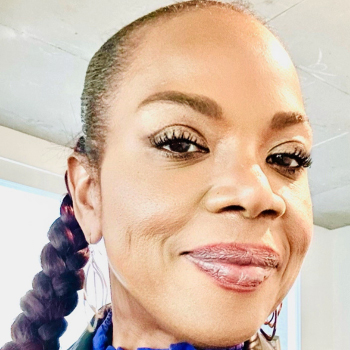

Rose serves as the global head of the Legal Intellectual Property (IP) group at Expedia with responsibility for a team handling all IP matters across Expedia and its various brands.
Prior to coming to Expedia, Rose served as Global Trademark Counsel managing the Cummins global trademark portfolio, which including responsibilities for advising on marketing and advertising matters and management of the anticounterfeit program.
Rose also provided IP support for multiple different Cummins business units, including support for the global patent portfolio development for those business units.
Rose is experienced in advising on intellectual property strategies for and implementation of complex transactions.
Prior to her time at Cummins, Rose was a federal employee for fifteen (15) years at the U.S. Department of Homeland Security where she established an Intellectual Property Law Practice Group within the Office of the General Counsel. Most recently, Rose was the Chief IP Counsel for DHS’s Cybersecurity and Infrastructure Security Agency (CISA), where she serves as the intellectual property subject matter expert for and on behalf of CISA.
Rose studied at George Washington University, New York University School of Law and Manhattanville College. She has a Master of Law (LL.M.) in Intellectual Property, a Juris Doctor (J.D.), and Bachelor of Arts Degree (B.A.). She is a registered patent attorney with a discipline in Physics.


The strongest IP strategies aren’t built in silos — they’re orchestrated across every available protection. From patents and trade secrets to licensing, trademarks, and copyrights, today’s leaders are integrating their entire portfolio into a cohesive system that deters competitors and amplifies business value. This closing discussion unites perspectives from across industries to illustrate how a coordinated IP arsenal creates both a shield and a sword in the global innovation race.
This panel will explore:
- How to combine patents, trade secrets, and licensing in a unified protection strategy.
- When to patent, when to keep confidential, and how to use each choice to reinforce the other.
- Building cross-functional alignment between legal, R&D, and business units around IP strength.
- Measuring portfolio effectiveness through competitive outcomes and long-term resilience.




Samantha (Sam) C. Pak is Senior Intellectual Property Counsel for Stryker Corporation in Redmond, Washington. Stryker is one of the world’s leading medical technology companies, whose products include implants used in joint replacement, trauma, and spinal surgeries; surgical equipment and surgical navigation systems; endoscopic and communications systems; neurovascular products; patient handling and emergency medical equipment, and other medical devices used in a variety of specialties. Sam assists with Stryker’s IP litigation, IP agreements, management of patent and trademark portfolios; due diligence for business development; and provides a range of other IP services. Before arriving at Stryker in 2018, Sam worked in the legal department at The Boeing Company assisting on various IP services and transactions. Prior to joining Boeing, Sam also practiced at the Miller Nash law firm in its Seattle, WA office. There, her practice included assisting with IP litigation; patent and trademark prosecution; transactions; and IP counseling and opinions. During law school, Sam also prosecuted many patents at an IP boutique firm and completed an internship at Baxter Healthcare immediately after receiving her doctorate degree in biomedical engineering. Sam is admitted to practice before the USPTO and in Washington.
If interested in participating, email info@centerforceusa.com
Rotating, 20-minute discussions hosted by a topic expert
Roundtable 1: Global IP Strategy: Managing Enforcement and Filings Across Jurisdictions
Roundtable 2: IP Valuation and Risk: Communicating Portfolio Value to the C-Suite
Roundtable 3: Protecting Trade Secrets in the Age of Remote Work and AI Collaboration
Roundtable 4: Brand Integrity in a Borderless Market
Speakers


Alexey Titov is an Intellectual Property Director at Stryker, a leading medical device company. His primary interests include defining IP strategy and patent development processes that maximize the business value of patent portfolios. Prior to joining Stryker, Alexey worked at a variety of intellectual property organizations including an IP consulting firm, a university technology transfer office, and a premier technology development company. Alexey is an inventor on 31 U.S. issued patents, has contributed a chapter to a book “Intellectual Property in Academia: A Practical Guide for Scientists and Engineers,” and is an author of several papers in the field of high energy and nuclear physics. He holds a Ph.D. in physics from the Rockefeller University, NY, and an M.S. in physics from Kharkov University, Ukraine.






Christopher Sweeney, Executive Director of Intellectual Property at Acuitas, focuses on aligning the company’s global IP strategy with its business objectives and supporting its robust internal research and development (R&D) program. He has over 20 years of experience in IP law and prior to joining Acuitas, served as Executive Director of IP at Seagen until its acquisition by Pfizer. Previously, he was an equity partner in the Seattle Office of Knobbe Martens. He received his JD (IP concentration) from the University of Washington, his MS in chemistry from the University of Oregon, and his BS in biochemistry from Gonzaga University.




Caldwell is Chief IP Counsel for Fluke and Chief Trademark Counsel for Fortive. Fluke is the world leader in professional electronic test tools and software for measuring and condition monitoring. Under her leadership, the IP team supports Fluke’s growth and innovation in an industry that is evolving from traditional hardware products to software and AI-enabled workflow solutions and services. Caldwell’s strong trademark background has given her significant expertise in global protection and strategic management of large trademark portfolios, with an emphasis on anticounterfeiting activities and worldwide trade dress enforcement. Caldwell’s 25-year career has given her extensive IP experience across a variety of industries, including industrial technology and manufacturing, food, CPG, consumer electronics, retail, and home improvement.


Rose serves as the global head of the Legal Intellectual Property (IP) group at Expedia with responsibility for a team handling all IP matters across Expedia and its various brands.
Prior to coming to Expedia, Rose served as Global Trademark Counsel managing the Cummins global trademark portfolio, which including responsibilities for advising on marketing and advertising matters and management of the anticounterfeit program.
Rose also provided IP support for multiple different Cummins business units, including support for the global patent portfolio development for those business units.
Rose is experienced in advising on intellectual property strategies for and implementation of complex transactions.
Prior to her time at Cummins, Rose was a federal employee for fifteen (15) years at the U.S. Department of Homeland Security where she established an Intellectual Property Law Practice Group within the Office of the General Counsel. Most recently, Rose was the Chief IP Counsel for DHS’s Cybersecurity and Infrastructure Security Agency (CISA), where she serves as the intellectual property subject matter expert for and on behalf of CISA.
Rose studied at George Washington University, New York University School of Law and Manhattanville College. She has a Master of Law (LL.M.) in Intellectual Property, a Juris Doctor (J.D.), and Bachelor of Arts Degree (B.A.). She is a registered patent attorney with a discipline in Physics.
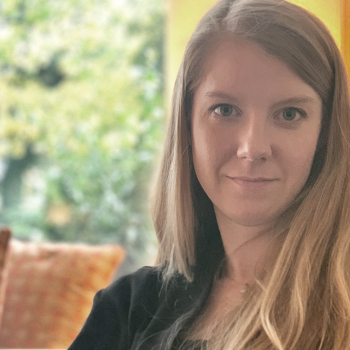

Heather Hedeen is a Principal Corporate Counsel on the Patent Team at Microsoft. She is responsible for advising on and developing the patent portfolio for Microsoft’s Security organization. She is also chair of Microsoft’s Intellectual Property Group Legal Learn Committee as well as sitting on the Outside Counsel Committee and Patent Law & Policy Committee.
In addition, Heather serves as a committee co-chair for ChIPs Mock Program, developed to create opportunities for associates and junior partners to gain real-life experience pitching to clients. Heather also sits on the Intellectual Property Owners Association (IPO) LeadershIP Development Committee. Further, Heather was recently appointed as the Young Lawyer Liaison to the Washington State Bar Association (WSBA) Intellectual Property Section and will serve for the 2024-2026 term. Heather also regularly speaks on patent portfolio strategy and development.
Prior to joining Microsoft, Heather was at Lam Research where she managed intellectual property portfolios related to semiconductor wafer fabrication equipment. Heather is a registered Patent Attorney before the U.S. Patent and Trademark Office and while in private practice, she had a varied practice representing leading technology clients in patent prosecution, patent portfolio analysis, and patent defense. Heather graduated cum laude from Lewis & Clark Law School and served as Managing Editor of Lewis & Clark Law Review. She received her B.S. General Engineering degree and M.S. Engineering degree with distinction from Cal Poly – San Luis Obispo.




Currently Senior IP Counsel at Cepheid, Paul previously served as Vice President of IP & Legal at Moat Metrics (formerly part of Aon plc) and held legal roles at Lane Powell (Counsel to the Firm) and RareCyte (Director, Legal & IP). Paul also served as a patent examiner at the U.S. Patent and Trademark Office. He brings a cross-sector perspective to IP strategy, licensing, IP analytics and valuation, litigation, and compliance across multiple industries, including biotech, diagnostics, telecommunications, AR/VR, AI/ML, green energy, and aerospace.




Malgorzata “Gosia” Kulczycka is an experienced attorney in the firm’s San Jose office with a broad-based IP law practice. With more than 15 years of legal experience, Gosia works to protect and support her client’s intellectual property through patent preparation and prosecution and by employing trademark and brand protection strategies for and against infringement claims.
Inventor herself, Gosia practices in various IP areas and technologies, including artificial intelligence and machine learning, communication technologies, complex software, and more.
Gosia also has extensive experience in computer graphics and computer networks. She has procured and managed large IP client accounts in computer graphics and AI.




Eric Hiponia is a Senior Patent Counsel at Intel, where he manages and develops a comprehensive patent portfolio spanning multiple technologies. His portfolio includes thousands of assets across multiple jurisdictions, covering diverse technology areas such as wireless core technologies, network infrastructure, and silicon photonics. He also played a pivotal role in high-profile transactions and licensing projects involving standards-essential patent (SEP) assets.
Eric oversees the performance of all US-based Outside Counsel (OC) firms supporting the patent group. He works with his team to create metrics for evaluating application quality, prosecution effectiveness, and cost efficiency across thousands of pending applications in multiple jurisdictions. His leadership ensures that patent strategies align with Intel’s long-term technological and business objectives.




Samantha (Sam) C. Pak is Senior Intellectual Property Counsel for Stryker Corporation in Redmond, Washington. Stryker is one of the world’s leading medical technology companies, whose products include implants used in joint replacement, trauma, and spinal surgeries; surgical equipment and surgical navigation systems; endoscopic and communications systems; neurovascular products; patient handling and emergency medical equipment, and other medical devices used in a variety of specialties. Sam assists with Stryker’s IP litigation, IP agreements, management of patent and trademark portfolios; due diligence for business development; and provides a range of other IP services. Before arriving at Stryker in 2018, Sam worked in the legal department at The Boeing Company assisting on various IP services and transactions. Prior to joining Boeing, Sam also practiced at the Miller Nash law firm in its Seattle, WA office. There, her practice included assisting with IP litigation; patent and trademark prosecution; transactions; and IP counseling and opinions. During law school, Sam also prosecuted many patents at an IP boutique firm and completed an internship at Baxter Healthcare immediately after receiving her doctorate degree in biomedical engineering. Sam is admitted to practice before the USPTO and in Washington.


Jonathan Tuminaro, Ph.D. is a director in Sterne Kessler’s Trial & Appellate and Electronics Practice Groups. Jonathan is an experienced trial lawyer who focuses his practice on complex electronics litigation in the U.S. district courts, the U.S. International Trade Commission (ITC), and the Patent Trial and Appeal Board (PTAB). He has represented some of the leading high-tech companies in patent litigation matters relating to telecommunications, network security, LCD flat-panel displays, computer graphics, automotive technologies, GPS location-based service, and wireless power transfer. Jonathan is particularly well known for his extensive experience handling economics issues in patent litigation—including damages in district court, domestic industry at the ITC, and objective considerations of non-obviousness at the PTAB. He has defended patents that have led to judgments worth nearly $25M and has defended against patents where the damages were alleged to exceed $100M.


Nirav N. Desai is a director in Sterne Kessler’s Trial & Appellate and Electronics Practice Groups. He specializes in simplifying complex matters—inside the courtroom and out—and solving problems in the process. Nirav is experienced in a full range of intellectual property issues, with a particular focus on patent litigation and counseling clients in global intellectual property strategy. An accomplished litigator, Nirav has served as lead counsel in district court litigation matters around the country and has been involved in matters before district courts, appellate courts, the U.S. Patent and Trademark Office’s Patent Trial and Appeal Board (PTAB), and the U.S. International Trade Commission (USITC) in Section 337 actions.


Sponsors
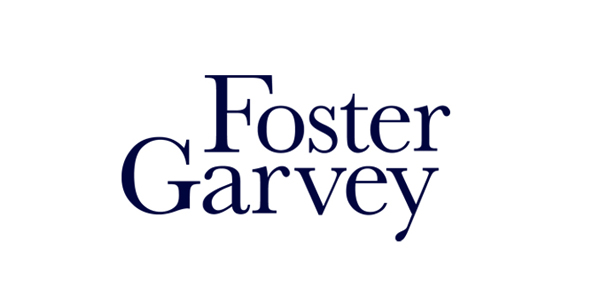
Foster Garvey
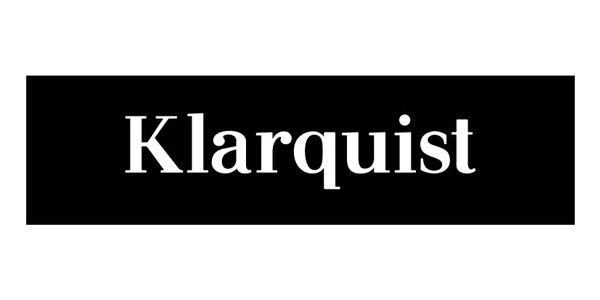
Klarquist
Klarquist is one of the oldest and largest intellectual property specialty firms based in the Pacific Northwest. The firm’s more than 60 attorneys and patent agents represent clients across the nation and the globe who are at the cutting edge of technology and innovation. Klarquist is routinely ranked in the top tier of IP firms in the US and the world, and the firm’s attorneys often receive individual recognition for their technical and legal expertise.
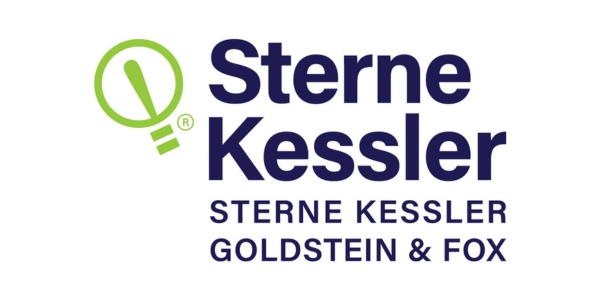
Sterne, Kessler, Goldstein & Fox
Sterne, Kessler, Goldstein & Fox is an intellectual property law firm of more than 175 professionals devoted to providing high value patent and trademark legal services. For 40 years, we have helped companies build, defend, and enforce worldwide IP portfolios from Washington, DC. Sterne Kessler’s service model is built on the unrivaled technical depth of its professionals, who hold over 50 Ph.D.’s and over 100 advanced technical degrees.
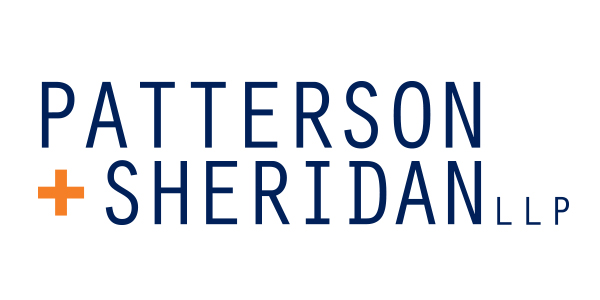
Patterson + Sheridan
Patterson + Sheridan LLP is a boutique IP firm with eight offices nationwide. Our firm’s broad and deep technical expertise sets us apart with 80+ attorneys, patent agents, and technical advisors spanning disciplines in engineering, physics, computer science, biology, materials science, and chemistry. P+S combines technical expertise with an in-depth understanding of intellectual property law and our clients’ business objectives to provide a pragmatic, efficient approach to support licensing and litigation efforts.
With a focus on patent preparation and prosecution since our beginning, P+S has formed decades-long partnerships with companies working seamlessly together to build, leverage, and protect their IP assets. P+S also works with some of the world’s best-known brands, providing cost-effective IP strategies and protection for a range of assets.
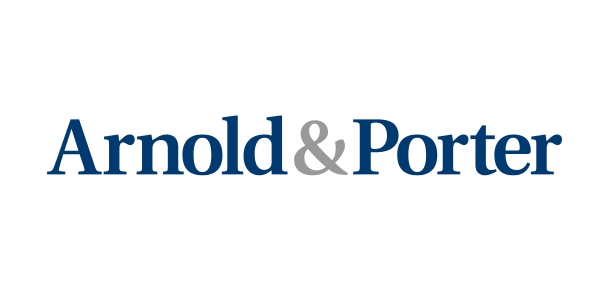
Arnold & Porter Kaye Scholer LLP
At Arnold & Porter, we are client-driven and industry-focused. Our lawyers practice in more than 40 practice areas across the litigation, regulatory and transactional spectrum to help clients with complex needs stay ahead of the global market, anticipate opportunities and address issues that impact the very value of their businesses. Our global reach, experience and deep knowledge allow us to work across geographic, cultural, technological and ideological borders, to offer clients forward-looking, results-oriented solutions that resolve their US, international and cross-border legal needs.
Pricing
| Register By | In House Counsel | Law Firms & Vendors |
|---|---|---|
| May 20, 2026 | $395.00 | Contact info@centerforceusa.com |
| While They Last! | Complimentary Access! | Contact info@centerforceusa.com |
- Payment is due in full at the time of registration and includes lunches, refreshments and detailed conference materials.
- Your registration will not be confirmed until payment is received and may be subject to cancellation.
- You may substitute delegates at any time. CenterForce does not provide refunds for cancellations.
- For cancellations received in writing more than seven (7) days prior to the conference you will receive a 100% credit to be used at another CenterForce conference for up to one year from the date of issuance.
- For cancellations received seven (7) days or less prior to an event (including day 7), no credit will be issued. In the event that CenterForce cancels an event, delegate payments at the date of cancellation will be credited to a future CenterForce event. This credit will be available for up to one year from the date of issuance.
- In the event that CenterForce postpones an event, delegate payments at the postponement date will be credited towards the rescheduled date. If the delegate is unable to attend the rescheduled event, the delegate will receive a 100% credit representing payments made towards a future CenterForce event. This credit will be available for up to one year from the date of issuance. No refunds will be available for cancellations or postponements.
- CenterForce is not responsible for any loss or damage as a result of a substitution, alteration or cancellation/postponement of an event. CenterForce shall assume no liability whatsoever in the event this conference is cancelled, rescheduled or postponed due to a fortuitous event, Act of God, unforeseen occurrence or any other event that renders performance of this conference impracticable or impossible. For purposes of this clause, a fortuitous event shall include, but not be limited to: war, fire, labor strike, extreme weather or other emergency.
- Please note that speakers and topics were confirmed at the time of publishing, however, circumstances beyond the control of the organizers may necessitate substitutions, alterations or cancellations of the speakers and/or topics. As such, CenterForce reserves the right to alter or modify the advertised speakers and/or topics if necessary. Any substitutions or alterations will be updated on our web page as soon as possible.
- All discounts must require payment at time of registration and before the cut-off date in order to receive any discount.
- Any discounts offered whether by CenterForce (including team discounts) must also require payment at the time of registration.
- All discount offers cannot be combined with any other offer.